As Tom Girardi skated, California State Bar went after Black attorneys
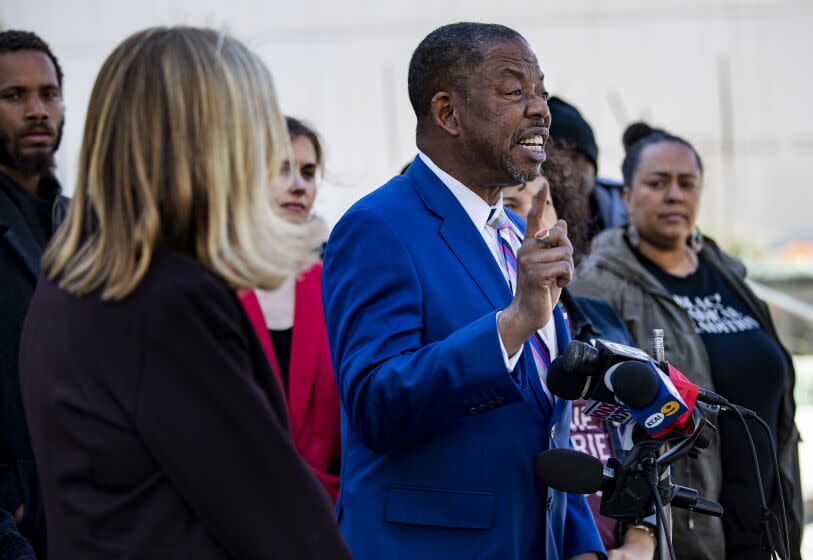
- Oops!Something went wrong.Please try again later.
- Oops!Something went wrong.Please try again later.
The case was not glamorous, and the clients — 16 homeless people evicted from an encampment — didn’t have money for a retainer, but that was how things went at Chima Anyanwu’s one-man law practice in Koreatown. He agreed to represent the group in 2016, and later that year secured a settlement of $64,000 from the city of South Gate.
Anyanwu paid each client what they were owed, even accompanying one desperate woman to a bank branch on a Saturday to help her cash her settlement check, court records show.
Then the State Bar of California got involved. After receiving a complaint from one client, the agency responsible for policing the legal profession combed through Anyanwu’s files and bank records. An investigator uncovered no evidence of misappropriation but found that Anyanwu, who had gone abroad shortly after the settlement, delayed by five weeks withdrawing from a client trust account $4,000 that he was due in fees in the case.
For this and two other similarly minor violations, the State Bar suspended Anyanwu’s law license for 30 days, placed him on probation for two years, ordered him to retake a professional ethics exam and announced the punishment in a press release published on Facebook and in a legal newspaper.
“I was an easy target for them and an easy prey,” said Anyanwu, who had maintained a spotless law license for 18 years.
The State Bar has repeatedly failed to police prominent and wealthy members of the legal community, most notably Tom Girardi, who misappropriated millions of dollars from clients over decades and racked up more than 150 complaints before the agency took public action. But there is a corollary inequality in the scandal: The bar has historically trained its firepower on individuals without the money, firm backing or political connections to put up a fight — and those lawyers are disproportionately Black men, like Anyanwu.
Between 1990 and 2018, Black male lawyers were nearly four times as likely to be disbarred or resign with charges pending, according to a study released by the bar three years ago. They were more than three times more likely to be placed on probation than their white counterparts.
Black lawyers interviewed by The Times described practicing law in fear that small accounting errors could tarnish their license even as colleagues who were well-off, white or worked at big firms avoided scrutiny for serious misconduct. During years that the bar was investigating and prosecuting Anyanwu, for example, it closed without punishment seven cases in which Girardi was accused of misappropriation, fraud or other wrongdoing.
The bar’s study, the only known examination of a California regulatory agency and the first of its kind for any state’s attorney discipline system, was the brainchild of the bar's executive director, Leah Wilson, who is Black. In a recent interview, she said the data validated long-standing suspicions in the Black community. “The bar hates us. Why do you want to work there?” she recalled hearing from peers.
“For us, we can’t make a mistake,” said Gregory Harper, a Black attorney in Contra Costa County fighting disbarment for issues related to a dispute with a client over $21,000, the third time he has faced discipline since becoming a lawyer 32 years ago. “Why didn’t Girardi get this kind of attention? It would have protected the public. You have zero dollars missing on my end and at least $14 million missing on his end.”
Being sanctioned by the State Bar, even if it is short of disbarment, can be destructive.
Public reprimands remain on lawyers’ records permanently and are visible in the agency’s online directory. Attorneys can lose existing and prospective clients, pay more for malpractice insurance, and lose out on lucrative court-appointed positions in class-action and other cases. Discipline can also hinder their certification for a legal specialty, such as family law, and make becoming a judge all but impossible. Sanctioned attorneys are also at greater risk for disbarment since agency guidelines call for increasing the severity of punishment for subsequent infractions.
“Any public discipline can be devastating for a licensed attorney,” said Jean Cha, a former State Bar prosecutor who now assists lawyers and firms with ethics and disciplinary matters.
Why the bar concentrates its resources on cases that are viewed as low-hanging fruit is related to its funding, The Times found. Instead of drawing on taxpayer money, the agency relies almost entirely on the yearly fees paid by the state’s 266,000 attorneys to fund its discipline system. But the bar cannot impose those fees without the permission of lawmakers in Sacramento.
When deciding whether to pass the fee bill each year, legislators historically have evaluated the bar with a focus on what is known as “the backlog” — the number of complaints from the public, judges and others against lawyers that have yet to be fully investigated and resolved. Sacramento zeroed in on these pending cases as a barometer of agency performance rather than as a sign that the bar was in need of more resources. The higher the number, the more difficult it was for the State Bar to get funded. Over time, top bar officials became fixated on this metric and passed it on to employees who came to see their jobs as completing as many cases as possible as quickly as possible.
But as the Girardi scandal demonstrated, efficient closures did not translate into effective policing of the profession. With bosses pressing prosecutors and investigators to keep the backlog low, they had little incentive to take on complex cases or those involving the rich and well-connected.
How often the State Bar looked the other way on high-profile attorneys is unclear. In the wake of the Girardi fiasco, the bar tapped University of San Diego School of Law professor Robert Fellmeth to review the files of other attorneys who had eluded discipline despite repeated complaints. The records of these lawyers, whose names have not been released, took up 28 boxes, Fellmeth recalled, and left him convinced bar employees “tend not to go after anyone, not just Girardi, who has a long-standing reputation, lots of friends, and resources to battle the crap out of them.”
“There is not just one Girardi,” Fellmeth said, adding, "They got 50 who worry the hell out of me."
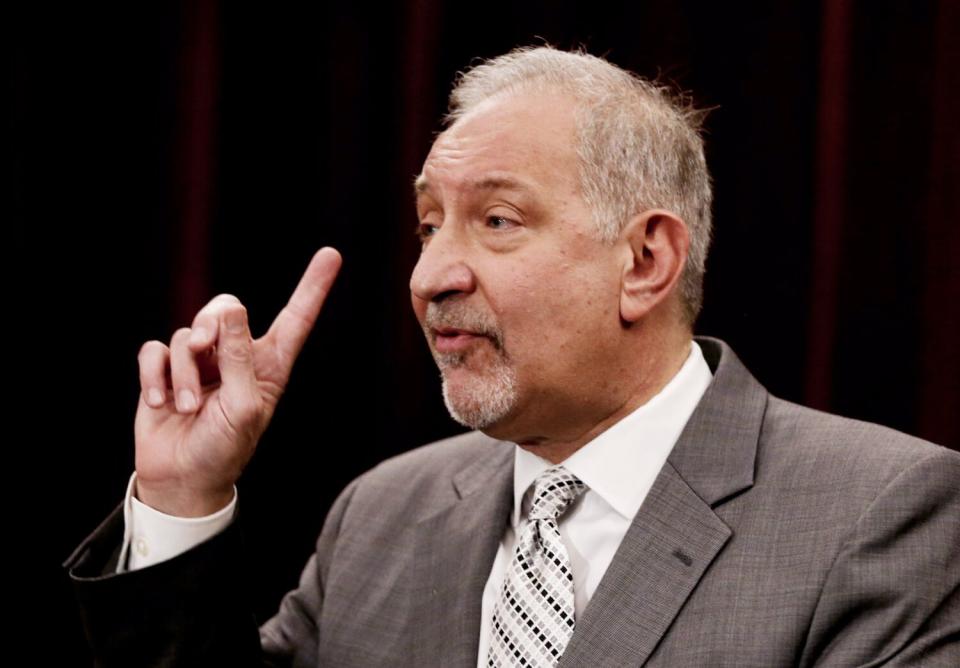
The Times identified two attorneys who went uncharged by the bar for years despite numerous accusations of wrongdoing. Mark Geragos, the L.A. criminal defense specialist and former CNN pundit, has been the subject of at least 56 complaints since 1986, according to a database of confidential bar complaints briefly published online earlier this year. Geragos has a clean public record, though following a Times report earlier this year, the bar announced that he was under investigation in connection with a class-action case on behalf of Armenian genocide victims and their descendants. Geragos did not respond to questions about the complaints against him, but wrote in an email that "it is a complete travesty that the State Bar has targeted Black lawyers and Solo Lawyers."
Former San Diego corporate executive and attorney Luke Zouvas was the subject of 87 complaints over 20 years, all of which were closed by the agency without public discipline. Only after Zouvas was indicted on money laundering charges in 2018 in what federal prosecutors described as a global stock manipulation scheme did the bar take public action against his law license. He was disbarred in 2020. The state auditor cited him as an example of investigative failures in an audit earlier this year describing the agency's shortcomings. Though Zouvas was not named, he is identifiable from bar court records.
Wilson, the bar’s executive director, acknowledged that there were “some significant challenges in our system that have resulted in it being geared towards addressing what we can do quickly. And those are the simpler cases.”
In perhaps the starkest example, the bar appears to have disbarred a dead man. Marcelo Reyes, a solo practitioner in La Habra, had previously informed the bar he was in “extreme ill health” and in and out of the hospital, but after letters about his failure to complete a probation form were returned unopened, the bar moved in June 2020 to revoke his law license. A death certificate reviewed by The Times shows he had died the previous month at Whittier Hospital. By the time the state Supreme Court formally disbarred him the next year, he had been dead for nine months.
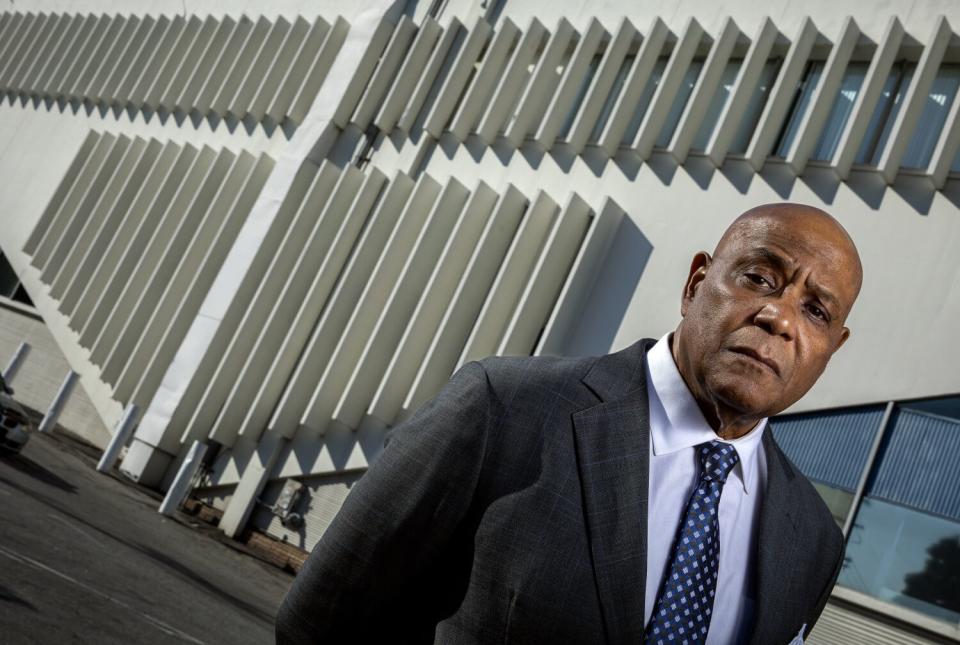
“A stat is a stat,” said Rickey Ivie, an L.A.-based attorney who serves on the state’s Commission on Judicial Performance. “When they look for people to prosecute — and that’s what the State Bar does, it looks for people to prosecute — they take the path of least resistance.”
Frequently that path takes the agency to lawyers who are too cash-strapped to hire a defense attorney for bar court. People familiar with the bar’s disciplinary proceedings said the first thing a prosecutor generally asks when assigned to a new case is whether the accused has a lawyer and if so, who it is.
A small cadre of veteran defense attorneys regularly work in the bar’s court, and when they are retained, experts said, cases are often dismissed or settled privately before charges are even filed. A prosecutor who decides to take an attorney with defense counsel to trial can expect lengthy proceedings that contribute to the backlog, more work and reduced chances of success.
“Often we get calls from people who started out representing themselves and they realize they are in over their heads and need some help,” said Arthur Margolis, who specializes in defending attorneys in State Bar court. “They don’t understand it’s a whole byzantine set of rules,” with a “whole psychology and culture” unfamiliar to most lawyers, Margolis said.
He said his preliminary fees, before formal charges, can run to $5,000, and “if it goes to trial, it will cost a lot more.”
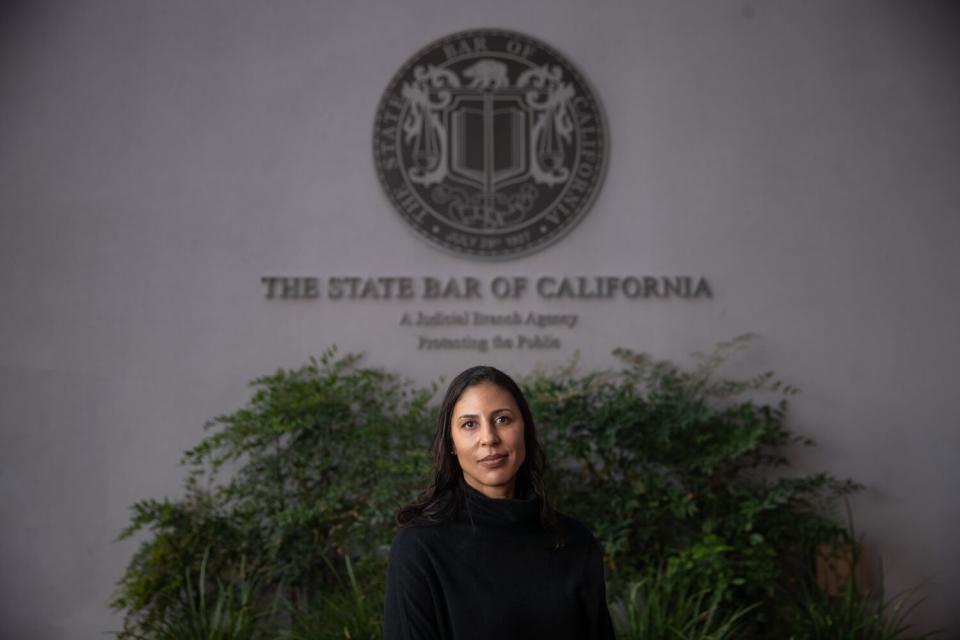
Black attorneys facing discipline are significantly less likely to have a defense attorney than white peers, according to the bar’s 2019 racial disparity study. While about 92% of white lawyers and 90% of Latinos under investigation had legal counsel, less than 85% of Black lawyers did.
L.A. attorney Freddie Fletcher represented himself in 2017 when the bar brought charges against him for violating court orders to pay discovery sanctions totaling about $5,500. The underlying lawsuit settled with terms that included payment of the sanctions, but the State Bar sought a public reprimand anyway.
“I had to learn as I went,” recalled Fletcher, who wrote in one filing that he could not afford $450 to $500 an hour for an attorney. In one email exchange in which Fletcher pressed a prosecutor to explain the legal basis for the charges, the prosecutor appeared to grow exasperated and urged him to seek help from a defense lawyer, even pro bono.
“I imagine many would be willing to answer a question or two without billing you,” the prosecutor told Fletcher.
Fletcher lost his bid to avoid public reprimand, though a bar review panel described his misconduct as “aberrational and unlikely to recur.”
Black men like Fletcher are more likely than other lawyers to be accused of wrongdoing in the first place. The bar study found that 46% of Black male attorneys were the subject of at least one complaint. In other demographic groups, the rates range from 44% for Latino men to 17% for Asian females. The rate for white men is 32%. In what the study's author called "a particularly striking statistic," 12% of Black male lawyers have received 10 or more complaints.
The study does not explain why Black men receive more complaints. There are various hypotheses in the legal community, including racism on the part of banks that make reports to the bar and a preference for practice areas, such as family law and criminal defense, where there is more direct contact with clients and emotions run high.
Some Black attorneys said the discrepancy had to do with how clients, opposing counsel and even judges view Black men and their vulnerability to law enforcement or other authorities.
“It’s a perception that people have and it’s born out of experience,” Fletcher said. “They know the police and the authorities have tendencies towards Blacks, so if you do something they don’t like, they will report you because they know [the bar] will be on their side because you are Black.”
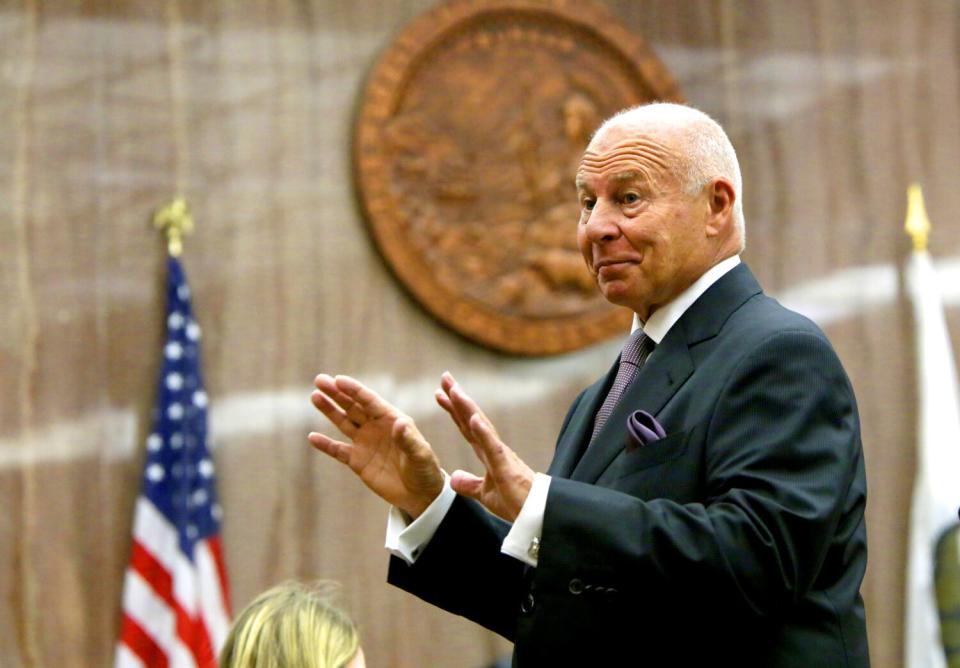
Veteran L.A. lawyer Carl Douglas, who is Black and was given a public reproval in 1997 for allowing his secretary and investigator to sign three subpoenas on his behalf while he worked on O.J. Simpson's defense team, said, “There is less rope Black lawyers are allowed before complaints are generated.”
One undisputed factor is that Black lawyers are more likely to work alone and solo practitioners are disproportionately disciplined. Those practicing alone do not have the resources of a big firm — more experienced colleagues to offer guidance and soothe frustrated clients, robust support staff, a dedicated accounting department and cash reserves.
“There are slimmer financial margins that Black lawyers have. Regrettably, it leads to difficult choices that aren’t always consistent with the State Bar rules,” said Douglas.
Ben Pavone, a white lawyer who practices alone in San Diego, launched his own study of bar data after being charged in 2020 with violating a requirement that lawyers "maintain the respect due to" judges when he criticized a ruling. His analysis, outlined in court filings, found that 99% of the cases the bar brings are against solo practitioners and small firms, even though they make up only 55% of the profession.
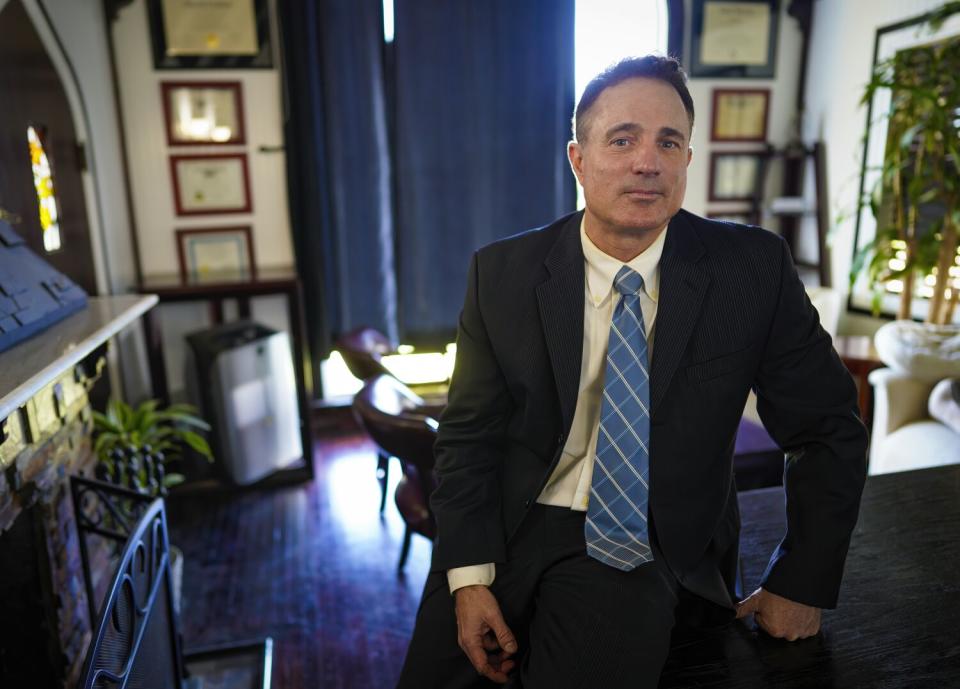
“Unable or unwilling to fight real crime, [the bar] settles to pick on small fish for their misdemeanors, infractions and political offenses,” Pavone wrote in a pending appeal of his punishment, a 30-day suspension.
He told The Times that the “real problem” is the agency is “a law firm composed of 100 Karens.”
“Which might be OK, if they were actually tackling Girardis, but as Karens do, they’re complaining about trivia while exempting the Girardis,” Pavone said in an email to The Times.
Wilson, the executive director, acknowledged that the bar needs “more visibility into what is happening in law firms.” She said she is not persuaded by assurances from big firms that they take care of problems internally and do not require as much regulatory scrutiny: “I don't think that leads us to a fair attorney discipline system.”
Wilson stepped down from the bar in 2020, after the racial disparity study came out, but she was rehired in 2021 in the wake of the Girardi scandal to help reform the agency. The bar is now considering measures to address the racial disparity and its effects, such as a pilot program that would provide free legal representation to low-income attorneys facing potential discipline. Another proposal is to remove some disciplinary records from the public directory after a period of years, as the regulatory agency for California doctors does.
“I think that is one small step that we can affirmatively take and I think it would be impactful for many people,” Wilson said.
For Anyanwu, whose representation of the homeless clients ended with discipline, the mark on his record still stings. He lost potential clients and as part of his defense he had to inform friends, colleagues and even his Catholic parish priests about the charges and ask them to act as witnesses to his good character.
“It was embarrassing,” Anyanwu recalled. He said the bar prosecutor, a man he grew to like personally, once reassured him, “You didn’t damage the legal profession. You didn’t hurt your clients. It was just a technicality.”
This story originally appeared in Los Angeles Times.

